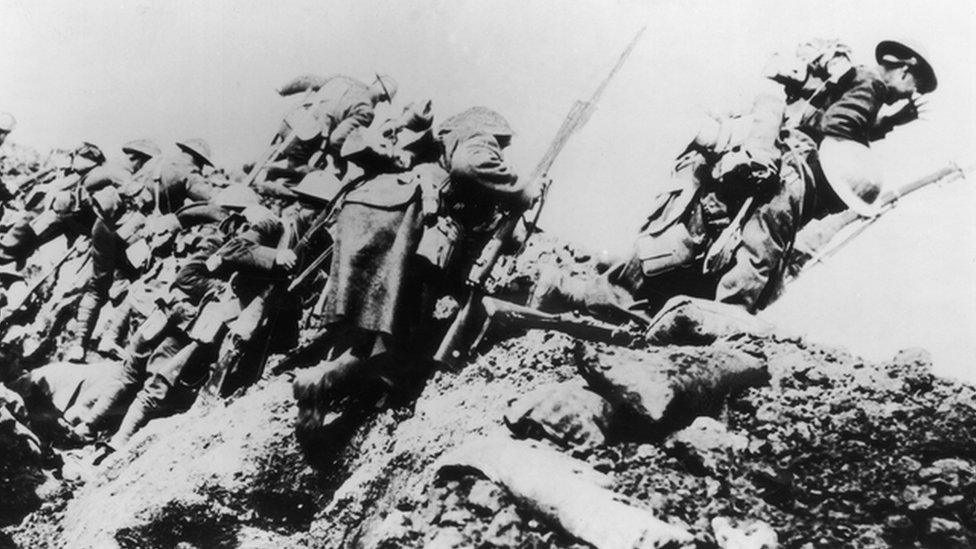Vigil in Cardiff remembers the Battle of the Somme
- Published
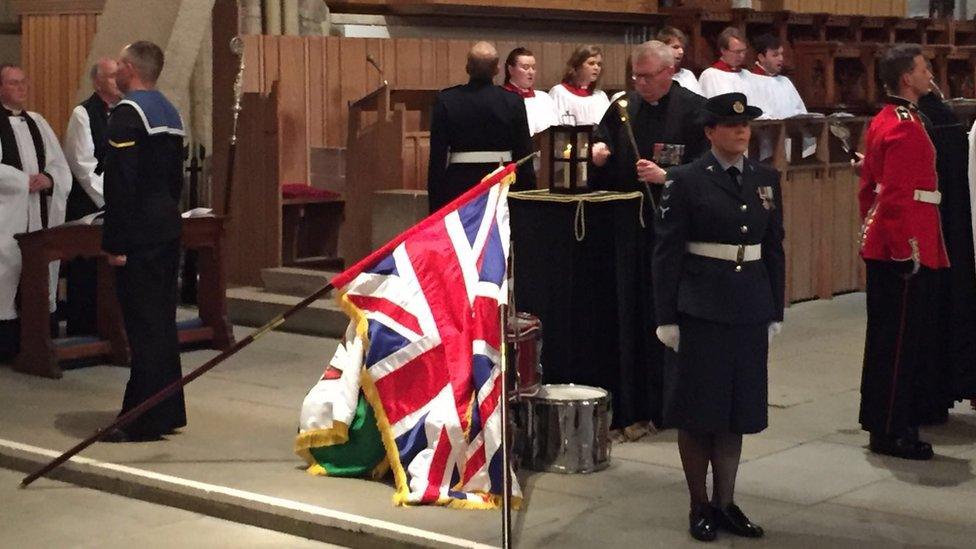
Trench lantern lit by Rev Steven Whiting, deputy assistant chaplain, 160th Infantry Brigade and Headquarters Wales
More than 150 people attended the start of an overnight vigil in Cardiff to mark the centenary of the Battle of the Somme.
First Minister Carwyn Jones joined members of the Army, Royal Navy and the Royal Air Force at Llandaff Cathedral.
The service, honouring those who fought in World War One's largest battle, ended with a two-minute silence.
The vigil finishes with a public service at the National War Memorial at 07:00 BST on Friday.
Commemorations are being held around the UK and France, including at Westminster Abbey in London where the Queen and the Duke of Edinburgh attended an evening vigil.
Mr Jones and Cardiff council leader Phil Bale were among those who gave readings at the Llandaff Cathedral service and Rev Steven Whiting, deputy assistant chaplain general for the 160th Infantry Brigade and Headquarters Wales, lit a trench lantern.
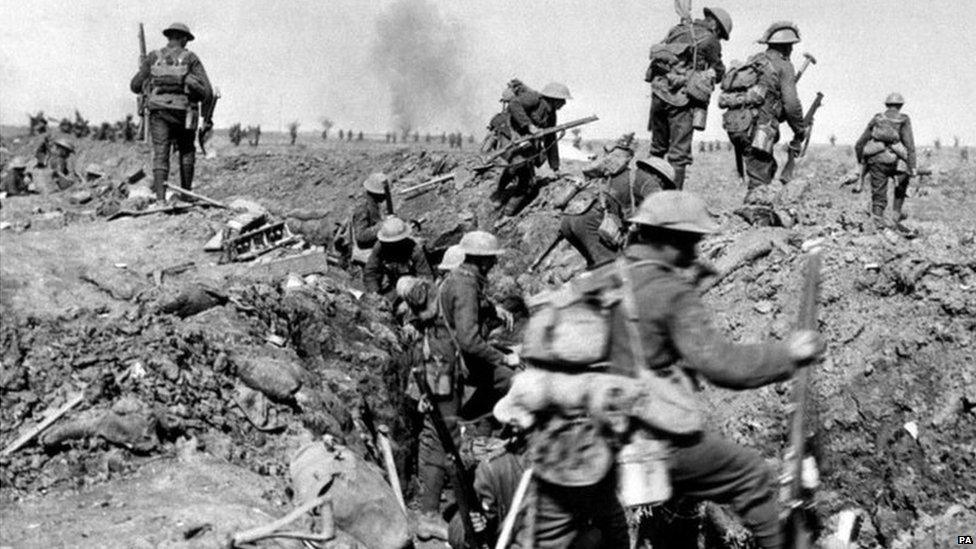
More than one million people on all sides were killed or wounded in the Battle of the Somme
Around Wales, churches and community groups have been hosting events to mark the battle, which began on 1 July 1916 and lasted for five months.
Among them, All Saints Church, Deganwy, in Conwy county, held a vigil with poetry and prose readings.
Wrexham's Glyndwr University Community Choir and Dinas Brân High School in Llangollen, Denbighshire, took part in a concert and service at St Collen's Church, Llangollen.
First Minister Mr Jones said he was honoured to lead the vigil at Llandaff Cathedral "to remember and reflect upon the sacrifices made by the one million men who were wounded or killed during the Battle of the Somme".
"Those who fought bravely for our futures should never be forgotten," he added.
"It is so important we all understand how the First World War changed our country forever, while we must also learn lessons to ensure such atrocities don't ever happen again."
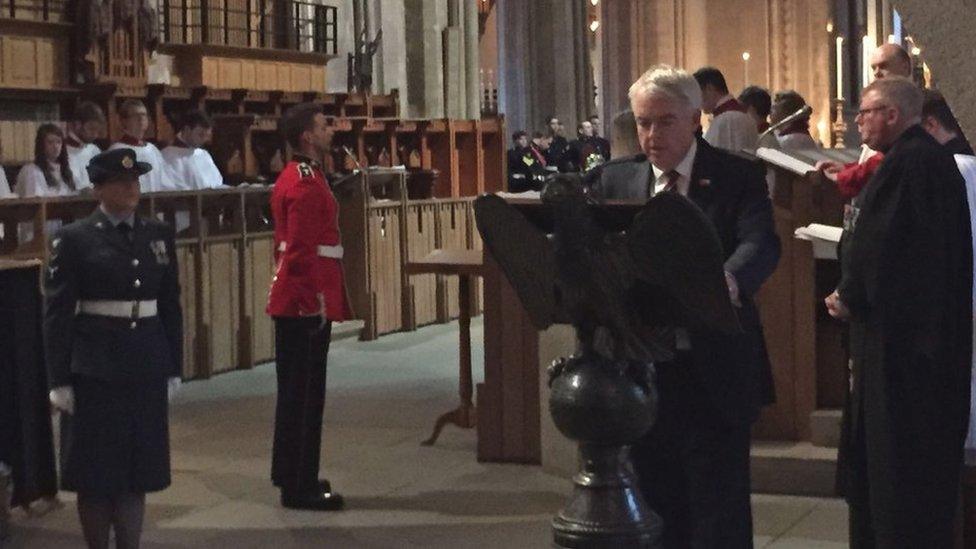
First Minister Carwyn Jones gave a reading
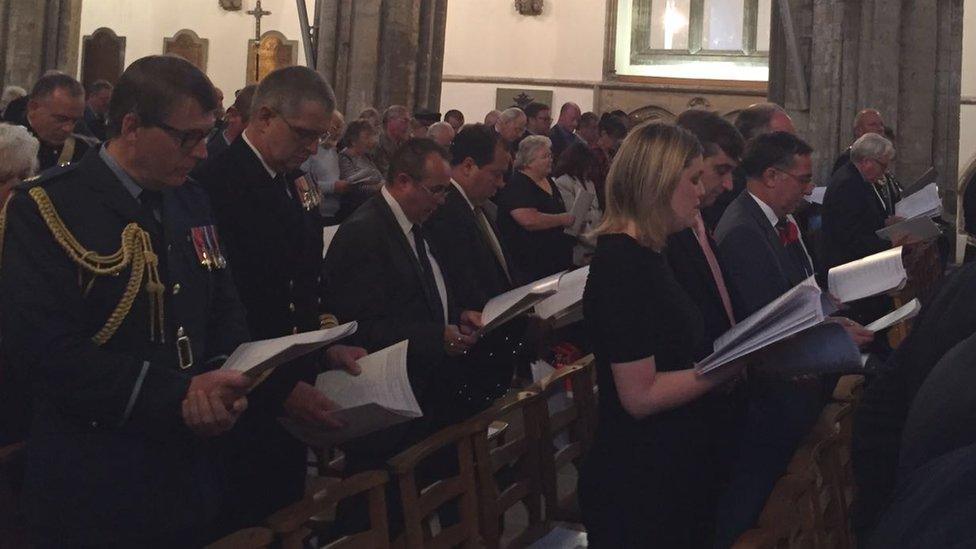
Congregation at Llandaff Cathedral on Thursday evening
Maj Andrew Poë, from the 160th Infantry Brigade and Headquarters Wales, whose great uncle died at the Somme, said: "To comprehend what people went through then is quite difficult now - it's very important we remember these significant dates in our history."
There will be various prayers and readings throughout the night, the first of which was done by pupils at Tonypandy Community College, whose pupils received a grant from Heritage Lottery Fund to study WW1.
Youth empowerment officer Jackie Jones said: "For us to be part of this was a real privilege, we're the only school invited which came on the back of our interest in World War One."
As part of their studies, pupils have been researching soldiers from the area who fought and died in the war.
Following the overnight vigil, a military vehicle will transport a World War One lantern from Llandaff to Cathays Park in the centre of Cardiff at about 04:30 BST.
It will be accompanied by two soldiers dressed in replica uniform.
The vigil will then continue at the Welsh National War Memorial before ending with a 30-minute public service at 07:00 BST to coincide with the time the battle began 100 years ago.
It will end with rapid gun fire and whistle blowing to signify the moment soldiers in the trenches went over the top followed by a two-minute silence at 07:28.
Mr Bale said the vigil was an important way to remember the war.
"This overnight vigil will play a small part in passing on the memories of those who fell and fought between July 1, 1916 and November 18, 1916," he added.

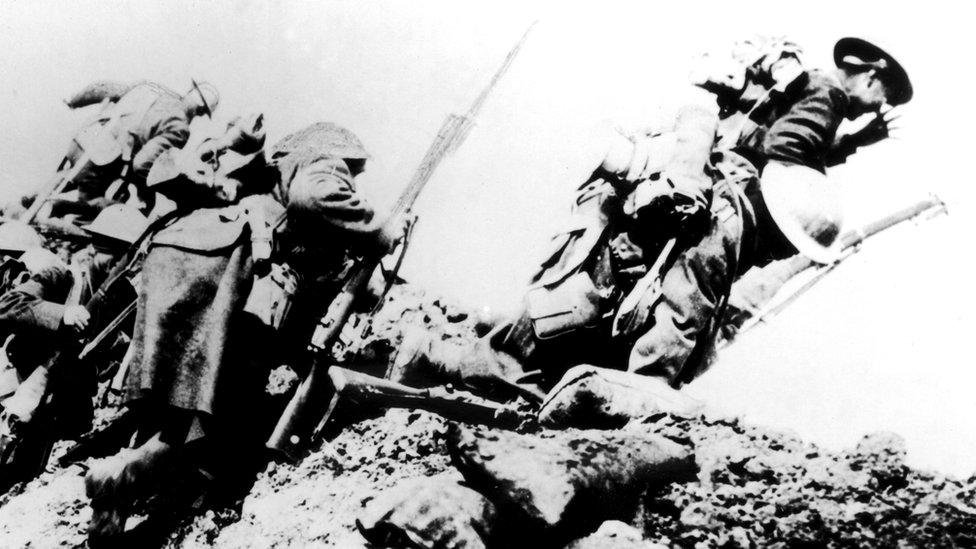
The Battle of the Somme
Began on 1 July 1916 and was fought along a 15-mile front near the River Somme in northern France
19,240 British soldiers died on the first day - the bloodiest day in the history of the British army
The British captured just three square miles of territory on the first day
At the end of hostilities, five months later, the British had advanced just seven miles and failed to break the German defence
In total, there were over a million dead and wounded on all sides, including 420,000 British, about 200,000 from France and an estimated 465,000 from Germany
Find out more:

- Published17 November 2016
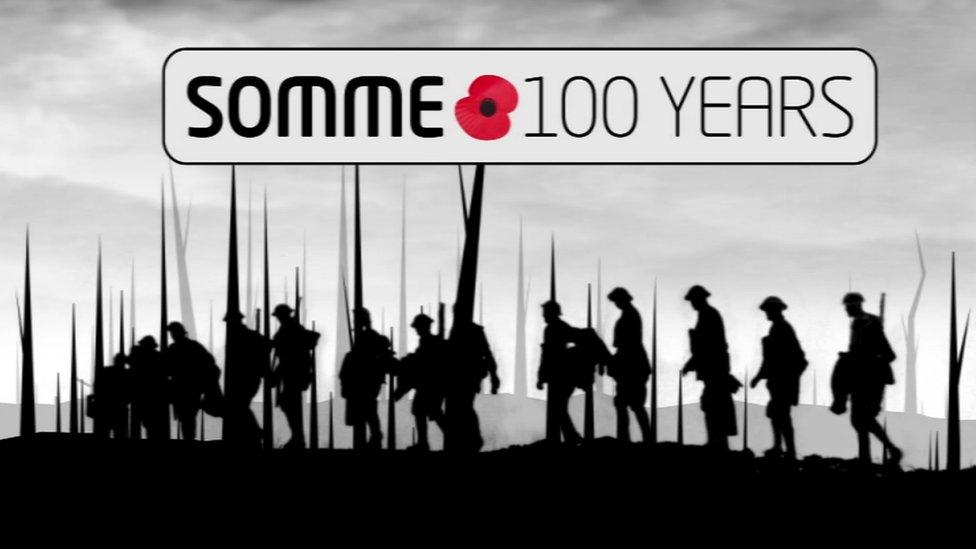
- Published29 June 2016
